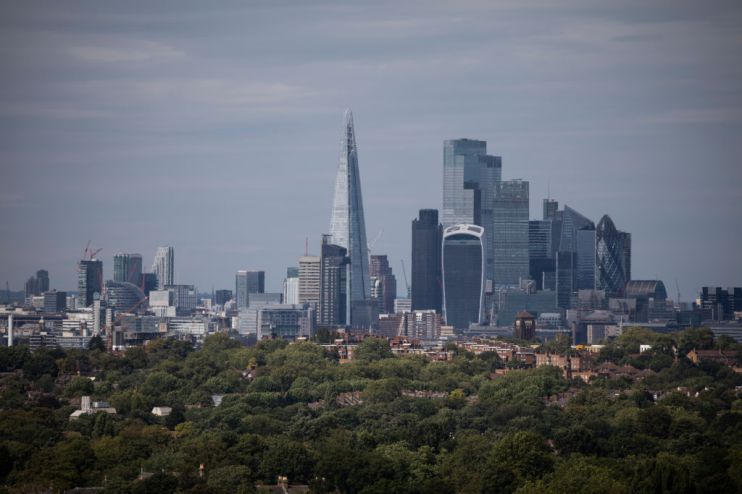FTSE 100 ends week lower as fears over US bond yields and housing market grow

The FTSE 100 dropped again today as concerns around rising US bond yields and sluggishness in the housing market outweighed optimism surrounding FTSE’s energy stocks and the weak pound.
London’s blue chip bourse ended down 0.3 per cent at 6,630 points as the global sell-off in bonds hit global equities hard. The FTSE 250 was down 1.6 per cent at 20,961 points.
Today’s decline was led mainly by industrial stocks, with Rolls Royce, Melrose Industries, BAE Systems and Ashtead Group among the worst performers
However, the top faller was the London Stock Exchange Group itself, which shed 14.38 per cent despite a positive set of full year results.
Just behind came the Scottish Mortgage Trust, which slumped 6.5 per cent.
Before the Open: Get the jump on the markets with our early morning newsletter
Risers were few and far between todayalthough a spike in global oil prices did push BP and Shell up a little way. The fall in the value of the pound has also benefited export-orientated stocks.
The jump came as the Opec producer alliance decided to maintain its production cuts through April, sending prices to their highest levels in 14 months.
In the US the S&P 500 and Nasdaq set for their third straight weekly loss. The tech-heavy Nasdaq is set for its worst week since March 2020 as fears of rising borrowing costs offset increased optimism about an economic recovery, spurred by an encouraging monthly job report.
Federal Reserve chief Jay Powell said that he would keep credit flowing until the pandemic was flowing, prompting a spike in bond yields.
Powell said that the Fed would not act to lean on rapidly climbing yields, which saw the surge gather pace.
Rising interest rates disproportionately harm tech stocks because investors value for them for their expecting earnings years into the future and high interest rates have more of an effect on future long-term earnings compared to earnings made in the short term.
The S&P 500 opened down 0.7 per cent, with the Dow Jones down 0.4 per cent, and the Nasdaq off by 1.9 per cent.
Since hitting record highs in the middle of February, the tech-heavy market has dropped 11 per cent. If the index closes 10 per cent below that level, it would confirm a correction.